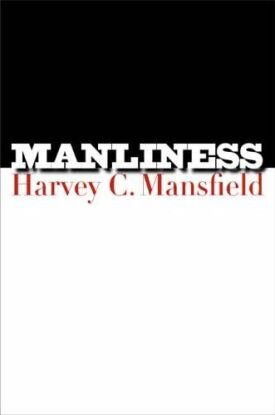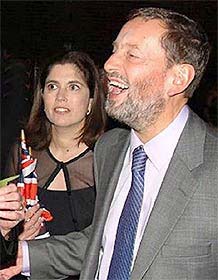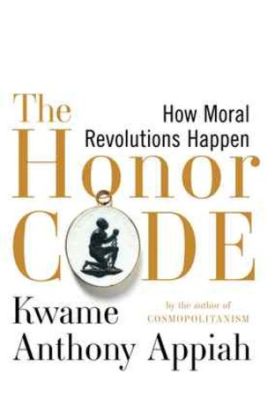The Neutering of the American Male
MANLINESS
By Harvey C. Mansfield
Yale University Press, 304 pp., $27.50
0 300 10664 5
President Larry Summers of Harvard, the university where Harvey Mansfield teaches, has recently been forced to resign partly for suggesting that it might be interesting merely to look more closely into the question of the natural differences between men and woman.
What then does Professor Mansfield deserve for going so thoroughly into the same question as he does in his enthralling new book, Manliness (Yale University Press, 304 pages, $27.50)?
He has titled Chapter Three “Manly Assertion,” and the book is itself an example of this. “Pay attention, says the manly man, which means pay attention to me. Manliness is not mere generalized pushiness but rather a claim on your attention. That is why the male animal displays and the manly man struts and boasts.”
Not that Professor Mansfield himself struts and boasts. On the contrary, he is unfailingly gentlemanly in his approach to those, particularly militant feminists, whose pushiness would seem to qualify them as being more manly, in this sense, than he is. I regret that he didn’t find more space here to go into the historical idea of the gentleman and the qualification it represents of the raw natural manliness that interests him.
No, what makes Manliness an exercise in manly assertion is that the book is as much about Professor Mansfield as it is about manliness. His assertion of what manliness is is thrillingly argued and never less than fascinating, but ultimately and inevitably it comes across as somewhat idiosyncratic. We can’t help feeling that, by golly, the professor makes a great case, but it is his case. Nobody else in the world, probably, thinks quite as he does on the subject.
This is partly because he is a philosopher, or a man who, because he is “able to bear the greatest studies,” possesses what Socrates thought of as the only real courage — and courage is the foundation of manliness.
The Greeks called raw natural courage thumos, which can also be translated as “spiritedness.” Professor Mansfield compares it to the bristling of a dog or other animal that wants to let us know it is ready to defend itself, and he points out that everywhere in nature, not just among human beings, it is more characteristic of males than females.
Obviously, thumos is only the starting point for more developed (and more human) forms of courage, such as that of Socrates. Professor Mansfield takes us through the philosophical literature on this subject and makes his own contribution to it in a way that few if any other philosophers in our time could do.
He does so by taking seriously the need of men — observed in all cultures and in all times, up until the present day — to identify themselves as not-women. Because women have no comparable need to identify themselves as not-men, feminists regard a man’s need to identify himself as not-woman as a calculated insult, a form of disrespect to women as well as a signal that he is willing to use the power that is the foundation of his not-womanness to oppress and brutalize women.
Therefore, since all human beings, irrespective of sex, are entitled to an equal respect and freedom from oppression, this male need will obviously have to be frustrated and denied. That denial has been the foundation of “the gender-neutral society” which is in the process of imposing itself on American culture as its official doctrine.
In his careful, pedagogical style, Professor Mansfield takes us through his arguments with feminism and the less-coherent academic and media consensus in favor of the gender-neutral society. That consensus normally doesn’t need to bother with arguments, so easy is it to stigmatize those who venture outside it, even for a moment, like Larry Summers.
Among other things, Manliness points out that the feminists were “the first revolutionaries not to give a single thought to the use of violence.” Why is this? Because, although their end was to emulate the manly denial of nature in pursuit of the Nietzschean “will to power” — here called “nihilism” — they did so by traditionally female methods. “The feminists knew more of the nature of woman than they cared to admit, and they relied on womanly devices.” And “patriarchy either created or tolerated civilization,” Professor Mansfield argues, “and civilization was very good for women because it nullified men’s advantage in big muscles.”
Moreover, men did not defend the “patriarchy” by which they enjoyed their masculine prerogatives but, with few exceptions, “they abdicated. You could even say they behaved as gentlemen.”
Most men, as far from their own nature as women, swiftly fell into line with feminist demands, right down to the changing of pronouns used to signify the unmarked gender. In doing so, perhaps, they lent a new credibility to the ostensibly discredited patriarchal notion that the powers once wielded by officially submissive women were at least a match for those of officially dominant men.
Somewhat surprisingly, Professor Mansfield ends by accepting the gender-neutral society, with all its shortcomings and self-contradictions as inevitable. But in order to realize it, we need “to readopt the distinction between public and private that is characteristic of liberalism . . .Thus citizens should be defined in gender-neutral terms. But in the private sphere, in society, we should think of men and women really, not formally.”
The liberal state, Professor Mansfield reminds us, “is neither male nor female.” But “the gender-neutral society gives no respect to the liberal distinction between state and society.” In other words, the personal should once again cease to be the political, as it was in pre-feminist times, so that “nature” — and in particular the distinctive natures of men and women — might be allowed to reassert itself.
I wish he had had more to say about why such an outcome would be more desirable, as well as more logical, than the gender-neutral society’s status quo. For instance, though he mentions the threat to our liberal society from “Islamic fascism” and its rampant thumos, he doesn’t insist on the need for a revived sense of manliness of our own to stand militarily against it.
But he is ever the philosopher as well as the gentleman, and both disdain to haggle in the political marketplace over merely prudential considerations such as this one. If he could not make his case theoretically, he would not bother to make it at all. Of course he can and does, and in doing so has given us a model of manly assertion to lead the way.
James Bowman is the author of
Honor, A History, forthcoming from Encounter Books
Discover more from James Bowman
Subscribe to get the latest posts to your email.







